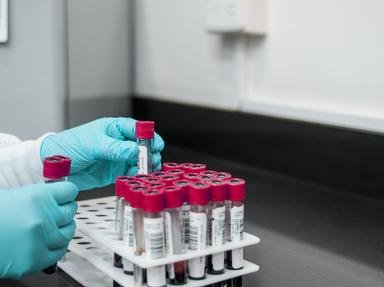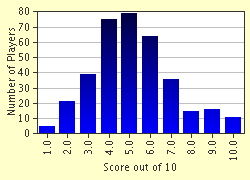Quiz Answer Key and Fun Facts
1. Which of the following is NOT a necessary component of a Maillard browning reaction?
2. What is the primary protein in traditional marshmallows?
3. What is the second largest component in milk?
4. What is the basic formula for carbohydrates?
5. Proteins may be denatured by all of the following EXCEPT:
6. What taste is associated with hydrogen ions supplied by acids like vinegar and by acid salts such as cream of tartar?
7. What organic acid occurs naturally in cranberries, prunes, cinnamon, and cloves?
8. What common food gets its flavor from microorganisms?
9. What is the primary colorant used to color cheese?
10. What chemical is used to test for sugars in a food?
Source: Author
percussionpro
This quiz was reviewed by FunTrivia editor
crisw before going online.
Any errors found in FunTrivia content are routinely corrected through our feedback system.


